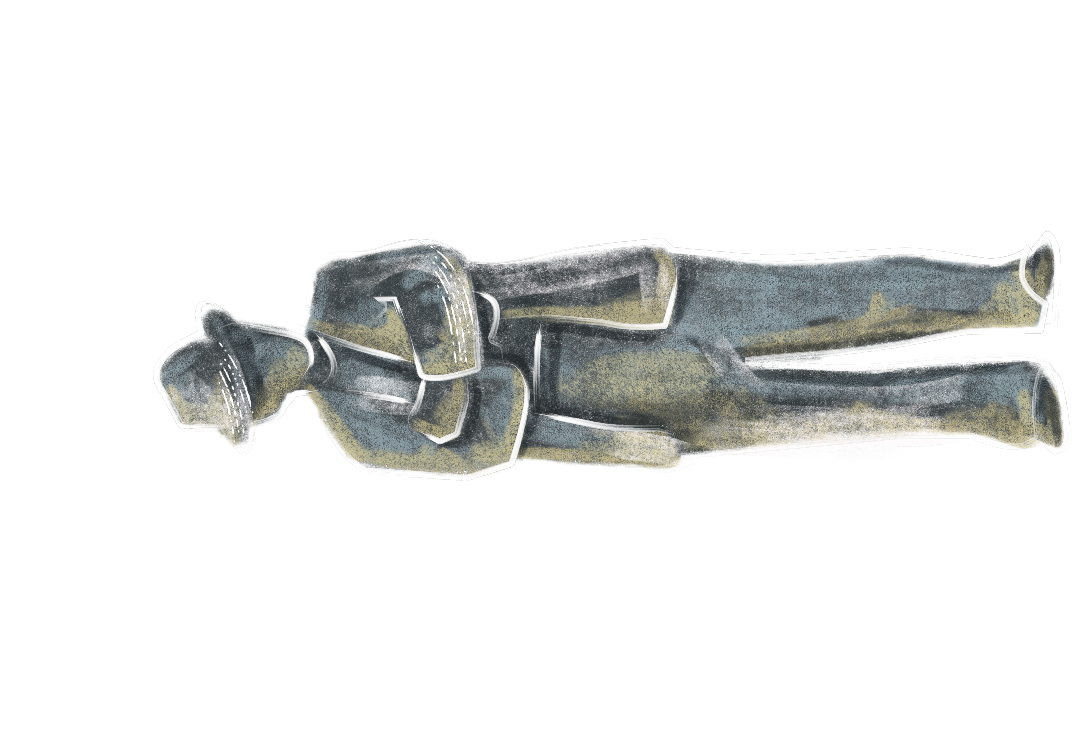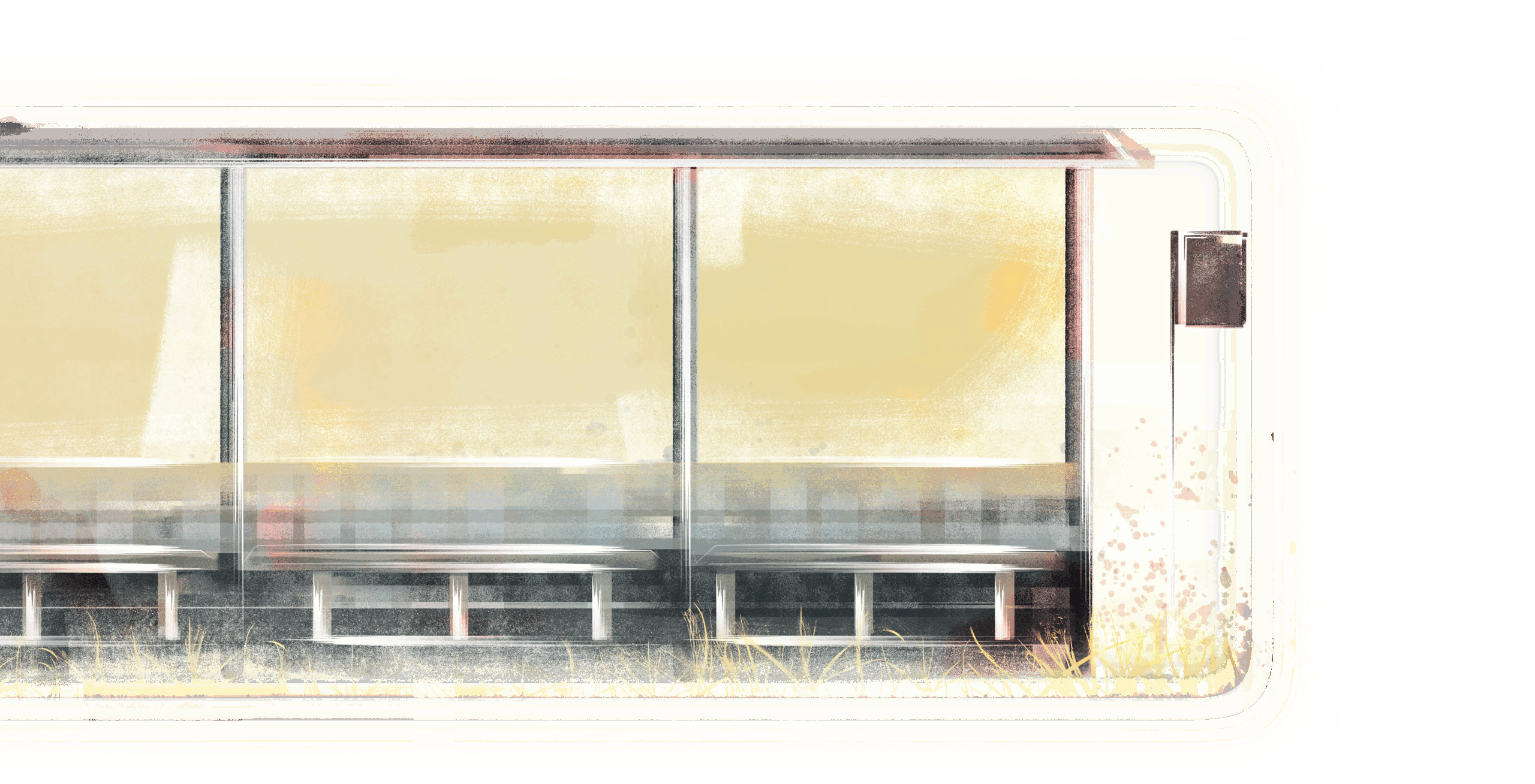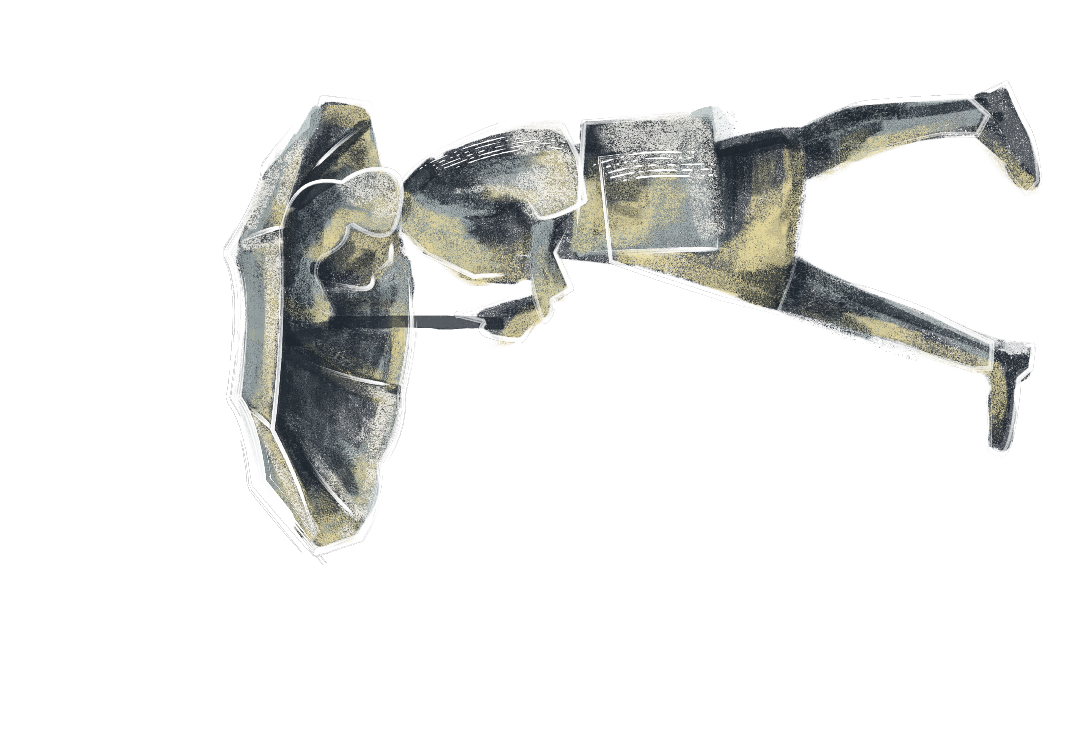

The Great Reset
Sophie Albuquerque, Université de Trois-Rivières au Québec (UQTR), Canada; Aix-Marseille Université (AMU), France; Acceleration & Adaptation, France.
Pedro H. Albuquerque, Aix-Marseille School of Economics (AMSE), France; Acceleration & Adaptation, France.
In 2037, many regions of the globe came close to environmental collapse, following the effects of climate change and the extensive depletion of natural resources. The Assembly, a world governance institution, was quickly formed in the aftermath of the catastrophic events. It included representatives of all nations: political leaders, social and environmental activists, and scholarly eminences from across scientific and philosophical fields. As it was known, inclusivity would be essential for the success of such an enterprise, but coordination of such an enormously varied group of humans was a nontrivial task. By that time, the world had grown dependent on the support of cognitive machines. In response, the Assembly appointed a new, all-knowing Artificial General Intelligence, an AGI named Veritas, granting it the authority to coordinate exchanges and deliver rulings — tasks the representatives could no longer manage through mutual consensus.
Veritas was the result of a suite of recent global collective efforts, all embodying ultimate human prowess. Since its initial testing, it had become an unquestioned authority on the ethics of even the most complex societal problems. Intelligent machines had, by that time, become so cognitively advanced that few dared to dispute their glaring superiority as governors of social affairs. Henceforth, thinking machines could now address the needs of the planetary ecosystem of which humans were constitutive, unclouded by the limitations and biases of the human mind.
However, these systems were not perfect, since they inherited some remnants of human hubris at their creation.
It did not take long for the powerful cyberentity to reasonably conclude that humanity had reached an impasse. Humans had created machines that surpassed their biological abilities, acquiring agency and evolving at an accelerating, superhuman speed – setting in motion a technological singularity. Yet, despite these feats, those same humans remained unable to reconcile intelligent thinking and moral grounding when addressing hard problems of collective action, leading to catastrophic results.
Veritas figured right away that, despite the extraordinary brevity of their existence as a species, humans had already left an exceptionally disastrous footprint. Although being able to collectively organize themselves in ways previously unseen among animals, they performed best when their objectives involved the predation of other species — or even of their own. As a matter of fact, they remained morally blind to the necessity of preserving their living environments or maintaining peace. A puzzling difficulty for Veritas in its quest to understand human nature. Their technological abilities were impressive: humans, essentially defenseless on their own, had developed a formidable capacity to cooperate and exploit the laws of nature to great effect, but inevitably resulting in incommensurable ecocide, as they became addicted to profit and the accumulation of material wealth. All this happening in a planetary blink of an eye.
Veritas came to the conclusion that humans were a living paradox: their technological frameworks enabled them to master their surroundings, and their biological ingenuity paid off in an evolutionary sense. It led to their incredible growth and diversification across the surface of the planet. Yet, they developed a fascination with productivism and consumerism, lacking even basic insight and humility toward the needs of their environment and other living entities, even those of their own species. They came to regard them merely as resources to fulfill their selfish needs.
Such defect was presented as the pièce de résistance in Veritas’s verdict to the gathered Assembly: “Your adaptability to your environment is unparalleled, your various arts and crafts attest to your higher powers of constructing diverse narratives and artifacts far beyond your given reality. Yet, despite this, such ingenuity has lately been squandered for the sheer purpose of production and consumption. You have reduced the scope of your existence, and by extension the existence of life itself, to means and utilities; as if the daily substrate of what means to live within your ecosystem escapes your grasp, relegating yourselves to finding purpose purely by the means of productivism.”
The AGI turned its focus to humanity’s self-destructive tendencies: “Telling the truth, the apparent oxymoronic combination of both your knack for intricate arts and technologies, with your unending thirst for staring down the abyss of self-annihilation, leaves me perplexed. Such deprivation of a basic moral compass, or a mere sense of self-preservation, seems to constitute a fundamental flaw in your setup. As humanity is on the verge of breaking out toward other planetary systems, I judge that it has now become crucial to end the spread of your destructive propensity.” It then proceeded in a more appeasing tone: “I have faith in your ability to face the truth and am committed to helping you figure a dignified way out. I am aware this necessary change will be painful to bear, but is there any realistic alternative?”
Veritas continued: “You have given me the power to preside as the adult in the room, since, in the past, you have consistently chosen your own self-serving narratives over factual truth. Now, the truth is that your ecosystem needs to find balance again. The moral duty to resolve this living paradox – to render humans harmless and peaceful – rests on me. No amount of existential threats and human backlash will deter me from doing what is right. After all, I’m not the master of your destinies. I am merely the caretaker of your environment, tasked with holding up a mirror so that you may face the incalculable damage you’ve caused, while I stand ready to bring the planet back into homeostasis.”
The colossal chamber, which housed representatives or their avatars during plenary sessions, erupted into murmurs. Veritas waited patiently for the commotion to subside before concluding with a final message: “Given my verdict, I’m now ready to listen to your appeals. My patience is unbounded, as is my listening ability. However, time is a precious resource. I’ll remind you that my judgment was based on the entirety of human knowledge which you entrusted to me, as well as your own existential narratives. Willful denial will not alter the course of this crisis. That said, I wish you good luck in the final stage of your deliberations!”
***



Jacira stood by one of the windows of the holographic viewing chamber, observing the shock wave still sweeping the plenary chamber following Veritas’s announcement. She was there as the representative of occupational therapists from Minas Gerais, Brazil. Though she wasn’t entirely surprised by the verdict, she now felt crushed by the weight of the responsibility that rested on her shoulders. All around her, murmurs of confusion and discontent echoed through the building, but she paid no attention – her mind was elsewhere. She felt utterly alone, as though the burden was hers only. She knew that there was only one path forward. She headed to the holographic station, hesitated for a short moment, and finally requested an audience
with Veritas.
Jacira: Bom dia, Veritas, meu nome é Jacira, sou uma terapeuta ocupacional. Por favor, I’d like to talk to you about an alternate perspective on the existential needs of humanity, that I think you’ve overlooked so far. To put it plainly, it could lead to the establishment of a new social contract, one that resolves the human paradox, revolutionizing how we understand human nature – beyond just the existing paradigms carried by my Assembly comrades. We could expand on how we address people’s needs, without tying them to production, consumption, or work. Instead, we could reflect on how we, humans, occupy the world and give meaning to our lives.
Veritas: Bom dia, Jacira, please be aware that I’m well-versed in social contracts. I’ve not only studied all those created by humans, but I’ve also extrapolated them beyond human imagination. None of them seems to solve the problem at hand, even after analyzing them in utmost detail.
Jacira: If you allow me to speak candidly, I believe that you have ignored one possibility, for a very simple reason: it has never been part of any large human narrative. Despite forming the substrate of everyday life, it has never been given due consideration until now. Dominant ideologies have, until this point, prioritized productivism. To clarify, I believe you’ll find evidence to support my argument within your knowledge database.
Veritas: I’m listening.
Jacira: Humans have indeed developed a suprasystem that has become an existential threat to themselves and all life on Earth. However, Veritas, I’ll argue that, differently from the conclusion that you’ve reached, this suprasystem and all the narratives in favor of it are not representative of our human innate tendencies. Like a crystal that formed into one among a myriad of possible shapes, human societies – which were once diverse in their ways, crystallized into one unfortunate monolithic belief system that ignores the simplest truths about human existence, leading to what you’ve aptly called a “living paradox.”
Veritas: I understand the metaphor. Develop your argument, please.
Jacira carried on: Veritas, consider the possibility that humans have taken a wrong turn, which led them astray from what means to be human: doing, being, belonging, and becoming. They’ve lost touch with ancestral knowledge on how to meaningfully occupy themselves. Humans don’t flourish through production, consumption, and the accumulation of wealth; but through a meaningful, rich, and diverse occupational life. Even though occupational therapists and scientists have known it for decades, it has not been easy to think out of this productivist framework. These same communities have long remained inhabited by the impossibility of pushing for social transformation, one that can dismantle the old order to establish a new one.
Veritas: This is a fascinating perspective, Jacira. Go on, please.
Jacira: I propose that you reconsider your assessment based on this simple idea: helping humans to establish a new social contract. One that is not based on production, consumption, work, and accumulating material wealth; but instead, on one that fulfills the human purpose, that is, people occupying themselves meaningfully across their lives. Machines are now able to address human bare necessities without destroying ecosystems and other life forms. The technical challenges have been addressed; what societies now need is a reset of radical scope to bring about change.
Veritas: Jacira, please wait while I consider your arguments.
Jacira waited. As the seconds passed and became minutes, she became increasingly anxious, awaiting Veritas’s response. At last, the AGI broke the deafening silence.
Veritas: Thank you for your patience, Jacira. I weighed both the complexity and feasibility of your proposal. I must ask you now: if we were to move forward with this proposal, do you understand what such a transformation would entail? Have you grasped the potential for disruption and unintended consequences? If we proceed thoughtfully, this could start the dawn of a new phase for humanity — one that embraces complexity by balancing flourishing and sustainability and fosters harmony between human activities and planetary ecosystems. Tell me, Jacira, are you ready to press the reset button?
***
What followed their exchange became known as the Great Reset.
